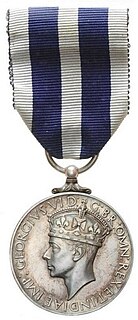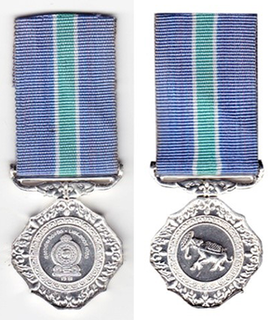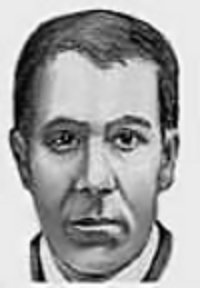Abdus-Samad Abdul-Wahid Golandaz GC was an Indian landowner who received the Empire Gallantry Medal (later converted to the George Cross), the highest non-combat gallantry decoration of the British Empire, in the 1934 Birthday Honours.
Contents


Abdus-Samad Abdul-Wahid Golandaz GC was an Indian landowner who received the Empire Gallantry Medal (later converted to the George Cross), the highest non-combat gallantry decoration of the British Empire, in the 1934 Birthday Honours.


Abdus Samad Abdul Wahid Golandaz, Land-lord, Property Owner and Sand Contractor, Bombay. Mr. Golandaz owns a fleet of boats and trained boatmen which he places at the disposal of the authorities whenever Surat, Rander or the surrounding districts are threatened by the floods, and on frequent occasions he has risked his own life in leading his men to works of rescue. He has shown conspicuous personal bravery on several occasions. In particular on the 16th of September 1933, when the Tapti River had swollen to such proportions that one of the sluices in the city wall had been damaged and water was pouring in through it, threatening to flood the city, he volunteered to dive into the flooded river and ascertain the nature and extent of the damage. He accomplished this brave feat successfully and blocked the sluice with sandbags at considerable risk to his own life. In 1930 he had also performed an act of conspicuous bravery in rescuing the boys of the Government High School and the family of the Excise Inspector, whose bungalows had been cut off by the floods. [1]

The Distinguished Flying Cross (DFC) is the third-level military decoration awarded to officers, and since 1993 to other ranks, of the United Kingdom's Royal Air Force and other services, and formerly to officers of other Commonwealth countries, for "an act or acts of valour, courage or devotion to duty whilst flying in active operations against the enemy".
The George Cross (GC) is the highest award bestowed by the British government for non-operational gallantry or gallantry not in the presence of an enemy. In the UK honours system, the George Cross is equal in stature to the Victoria Cross, the highest military gallantry award. This has been the case since the introduction of the award in 1940. It is awarded "for acts of the greatest heroism or for most conspicuous courage in circumstance of extreme danger", not in the presence of the enemy, to members of the British armed forces and to British civilians. Posthumous awards have been allowed since it was instituted. It was previously awarded to residents of Commonwealth countries, most of which have since established their own honours systems and no longer recommend British honours. It may be awarded to a person of any military rank in any service and to civilians including police, emergency services and merchant seamen. Many of the awards have been personally presented by the British monarch to recipients or, in the case of posthumous awards, to next of kin. These investitures are usually held at Buckingham Palace.
Christopher Finney, is a former British soldier of the Blues and Royals who was awarded the George Cross for bravery under friendly fire during the 2003 invasion of Iraq.

Colonel Henry George Gore-Browne was born in Newtown, County Roscommon and was an Irish recipient of the Victoria Cross, the highest and most prestigious award for gallantry in the face of the enemy that can be awarded to British and Commonwealth forces.

Jacob Rivers VC was an English recipient of the Victoria Cross (VC), the highest and most prestigious award for gallantry in the face of the enemy that can be awarded to British and Commonwealth forces. He was posthumously awarded the VC during the First World War for his actions during the Battle of Neuve Chapelle in March 1915.

Lieutenant Colonel Thomas Bernard Hackett was born in Riverstown, County Tipperary and was an Irish recipient of the Victoria Cross, the highest and most prestigious award for gallantry in the face of the enemy that can be awarded to British and Commonwealth forces.

The Conspicuous Gallantry Medal (CGM) was, until 1993, a British military decoration for gallantry in action for petty officers and seamen of the Royal Navy, including Warrant Officers and other ranks of the Royal Marines. It was formerly awarded to personnel of other Commonwealth countries. In 1943 a Royal Air Force version was created for conspicuous gallantry in action against the enemy in the air.

The Queen's Police Medal (QPM) is awarded to police in the United Kingdom for gallantry or distinguished service. It was also formerly awarded within the wider British Empire, including Commonwealth countries, most of which now have their own honours systems. The medal was established on 7 July 1909 as the King's Police Medal (KPM), initially inspired by the need to recognise the gallantry of the police officers involved in the Tottenham Outrage. Renamed the King's Police and Fire Services Medal (KPFSM) in 1940, it was replaced on 19 May 1954 by the Queen's Police Medal (QPM), when a separate Queen's Fire Service Medal was also instituted.

The Queen's Gallantry Medal (QGM) is a United Kingdom decoration awarded for exemplary acts of bravery by civilians, and by members of the Armed Forces "not in the face of the enemy", where the services were not so outstanding as to merit the George Cross or the George Medal, but above the level required for the Queen's Commendation for Bravery.

The Albert Medal for Lifesaving was a British medal awarded to recognize the saving of life. It has since been replaced by the George Cross.

The Weerodara Vibhushanaya is the second-highest decoration awarded by the Military of Sri Lanka awarded for:
...individual acts of gallantry and conspicuous bravery of a non-military nature of the most exceptional order performed voluntarily with no regard to his own life and security with the objective of saving or safeguarding the life or lives of a person or personnel imperiled by death or for a meritorious act or a series of acts of a humane nature of an exceptional order displayed in saving life from drowning, fire and rescue operations in mines, floods and similar calamities under circumstances of grave bodily injury or great danger to the life of the rescuer...

The Decorations of Honour of the Bundeswehr are a series of military decorations of the Bundeswehr, the armed forces of the Federal Republic of Germany. These honours and awards were introduced in 1980 on the occasion of the 25th anniversary of the Bundeswehr by then Minister of Defence Hans Apel and subsequently approved by President of the Federal Republic Karl Carstens.
Able Seaman Thomas Raymond Kelly was a Northern Irish sailor in the British Merchant Navy who was posthumously awarded the George Cross for the courage he displayed in the Bay of Biscay, when he lost his own life saving people from drowning during a storm.

The Sea Gallantry Medal (SGM), is a United Kingdom award for civil gallantry at sea.

Mark Anthony Addy AM was a publican and champion oarsman, from Manchester, England, who was awarded the Albert Medal (AM), and a number of other honours, for the rescue of over 50 people from the then highly polluted River Irwell in the 19th century. The Albert Medal was later superseded by the George Cross as the highest civilian or non-combat gallantry award in the British honours system.
The Operations in the Tochi were carried out by Indian Army during World War I on the North West Frontier. The Tochi river flows East from the tribal territories, through North Waziristan, to join the Kurram and the Indus rivers. On the 28 and 29 November a raid by 2,000 tribesmen from Khost was defeated by the North Waziristan Militia near Miranshah, on the Tochi. The next January the militia again defeated a raid by tribesmen which had attacked Spina Khaisora. On 25–26 March a force of over 7,000 tribesmen, threatened Miranshah, but was defeated by the Bannu Brigade together with the local militia.

Empire Bowman was a 7,030 GRT cargo ship built in 1942 for the Ministry of War Transport (MoWT). Completed in May 1942, she served until 30 March 1943 when she was torpedoed and sunk by U-404. One of her crew was awarded an Albert Medal for his actions in the sinking.
Gordon Love Bastian, was an engineering officer in the British Merchant Navy who was awarded the Albert Medal for risking his own life to save other members of the crew of SS Empire Bowman after it was torpedoed on 31 March 1943. In 1971, living recipients of the Albert Medal and Edward Medal were instructed to return their medal and were instead issued with the George Cross, the highest decoration for gallantry awarded to civilians or to military personnel for actions "not in the face of the enemy" in the United Kingdom and Commonwealth
The King's Birthday Honours 1934 were appointments in many of the Commonwealth realms of King George V to various orders and honours to reward and highlight good works by citizens of those countries. The appointments were made to celebrate the official birthday of The King. They were published on 4 June 1934.